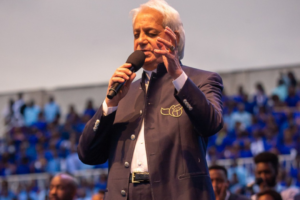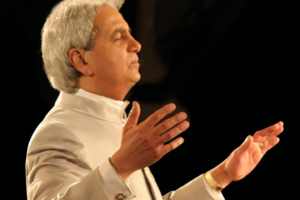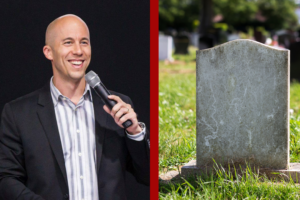President Trump nominated D.C. Court of Appeals Judge Brett Kavanaugh to fill retiring Justice Anthony Kennedy’s vacancy on the Supreme Court.
Judge Kavanaugh, who has written over 300 judicial opinions, said in his nomination speech last night that his judicial philosophy has been “straightforward. A judge must be independent and must interpret the law, not make it.” Kavanaugh also stressed he believes in interpreting statutes and the Constitution as they are written, “informed by history and tradition and precedent.”
In his speech, “From the Bench: The Constitutional Statesmanship of Chief Justice William Rehnquist” that Kavanaugh presented for the 2017 Walter Berns Constitution Day Lecture at the American Enterprise Institute about Chief Justice Rehnquist, he said Rehnquist was “his first judicial hero.” Kavanaugh’s lecture focused on the impact that Rehnquist had on the Supreme Court, noting that the “Court unquestionably changed and became more an institution of law, where its power is to interpret and to apply the law as writing, informed by historical practice, not be its own person and policy predilections.”
Regarding the Supreme Court’s abortion decisions, he pointed out that Rehnquist dissented from the 1973 Roe v. Wade decision and the 1992 Planned Parenthood v. Casey decision. In Casey, Rehnquist was originally writing the majority opinion to overrule Roe, but 30 days into the writing phase, Justice Kennedy changed his vote from striking down Roe to upholding Roe. The opinion was now removed from Rehnquist, who then found himself in the dissent.
Rehnquist believed a judge must apply the law, not create it. He believed that fundamental rights must either be enumerated in the Constitution (like free speech) or deeply rooted in history and tradition. Abortion was neither an enumerated right nor deeply rooted in history and tradition. While Rehnquist’s views on abortion never became the majority opinion, he did write the majority opinion in the 1997 so-called “right to die” case known as Washington v. Glucksberg. Writing for the 5-4 majority, Rehnquist said that the “right to die” was neither an enumerated right nor deeply rooted in history and tradition. Here, Rehnquist’s originalist views did prevail.
Regarding these decisions, Kavanaugh stated the following:
“[Rehnquist’s dissent] stated that under the court’s precedents, any such unenumerated right had to be rooted in the traditions and conscience of our people. Given the prevalence of abortion regulations both historically and at the time, Rehnquist said he could not reach such a conclusion about abortion. He explained that a law prohibiting an abortion even where the mother’s life was in jeopardy would violate the Constitution. But otherwise he stated the states had the power to legislate with regard to this matter. In later cases, Rehnquist reiterated his view that unenumerated rights could be recognized by the courts only if the asserted right was rooted in the nation’s history and tradition.”
Kavanaugh continues his discussion of these cases:
Of course, even a first-year law student could tell you that the Glucksberg approach to unenumerated rights was not consistent with the approach of the abortion cases such as Roe v. Wade in 1973—as well as the 1992 decision reaffirming Roe, known as Planned Parenthood v. Casey.
In other words, Rehnquist prevailed in stopping the court from continuing its activist approach to the Constitution in the Glucksberg case, which is exactly what he tried to do in the 1973 and 1992 abortion decisions. And here is the critical part of Kavanaugh’s lecture:
“But he was successful in stemming the general tide of freewheeling judicial creation of unenumerated rights that were not rooted in the nation’s history and tradition. The Glucksberg case stands to this day as an important precedent, limiting the court’s role in the realm of social policy and helping to ensure that the court operates more as a court of law and less as an institution of social policy.”
Kavanaugh’s 2017 lecture is a window into his judicial philosophy. It reveals he believes judges should interpret the law, not make it. He believes that judges have no authority to create law or amend the Constitution. It is the sole right of the people to amend the Constitution, not judges.
On this point Kavanaugh stated that “changes to the Constitution and laws are to be made by the people through the amendment process and, where appropriate, through the legislative process—not by the courts snatching that constitutional or legislative authority for themselves.”
“I support the nomination of Judge Brett Kavanaugh to the Supreme Court,” said Liberty Counsel Founder and Chairman Mat Staver. “As he has repeatedly stated, his judicial philosophy is simple—judges must interpret the law, not make it. It is the right of the people, not judges, to amend the Constitution and the laws. Judge Kavanaugh is the right kind of judge we need on the bench.” {eoa}
For the original article, visit lc.org.
See an error in this article?
To contact us or to submit an article























